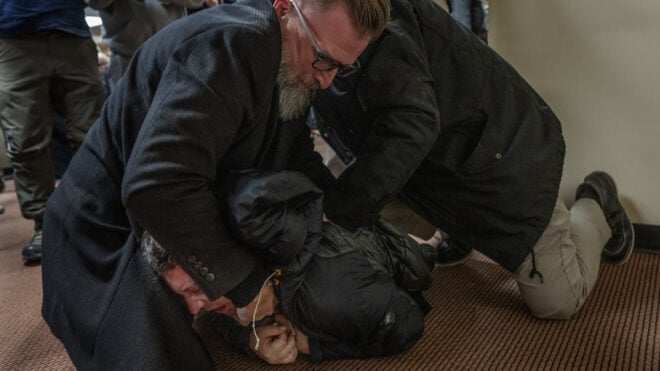
Students at one Arkansas high school were tired of unfair dress code policies, so they started a new movement: "Pass the Skirt."
Clara Mitchell, a student at Parkview Arts/Science Magnet High School in Little Rock, Arkansas, arrived at school one day in January 2019 in a plaid skirt. School officials pulled her aside for a dress code violation. Her skirt, according to officials, was way too short.
But the very next day, Clara's friend Laura Orsi wore the exact same skirt to school as an experiment. No one said a peep. She even went out of her way to bump into the same school officials from Clara's incident — but nothing happened.
The incident inspired Laura to start Pass the Skirt to draw attention to how discriminatory and arbitrary the dress code is. Administrators tend to target certain students, like girls of color or those with a certain body type.
"Different administrators will… have different ideas of what ‘out of dress code’ really means,” Laura told Today Style. “That’s the main thing that inspired me — wanting everyone to be dress coded equally and to set a good standard.”
That movement has gained nationwide attention.

Clara Mitchell is a student at Parkview Arts/Science Magnet High School in Little Rock, Arkansas.
On January 23, she was scheduled to speak at her school's science symposium. She decided to wear a plaid skirt for the occasion — one she'd worn to school before with no problem.

But this time, Clara was called into the assistant principal's office for a dress code violation.
"A lady who works at the attendance office told me that my skirt was way too short, and asked me to turn around. She then called an assistant principal to escort me to his office. I offered to put my trench coat on to cover myself up, but they would not let me," Clara recalled to Today Style.
School officials made Clara turn around repeatedly to "look at the back." As a result of the scrutiny, she had a panic attack, which administrators accused her of faking.
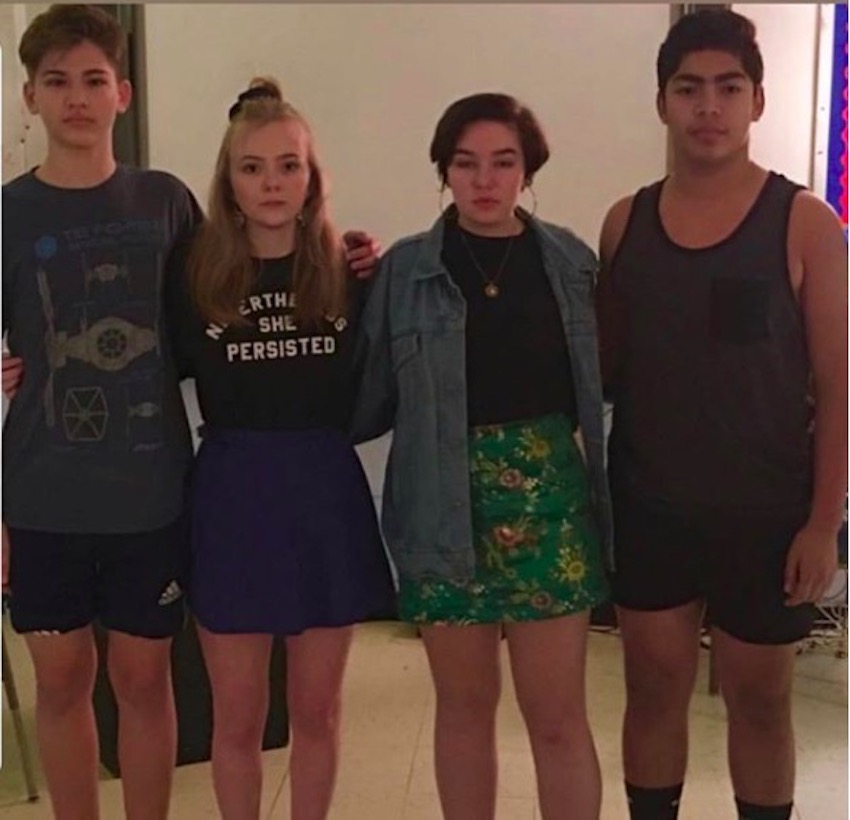
Clara texted her good friend, Laura Orsi, about what was happening.
"Laura came by the office to comfort me, and another assistant principal not only thought I was pretending to have a panic attack for pity, but also threatened to dress code Laura for her dress, but did not," Clara said.
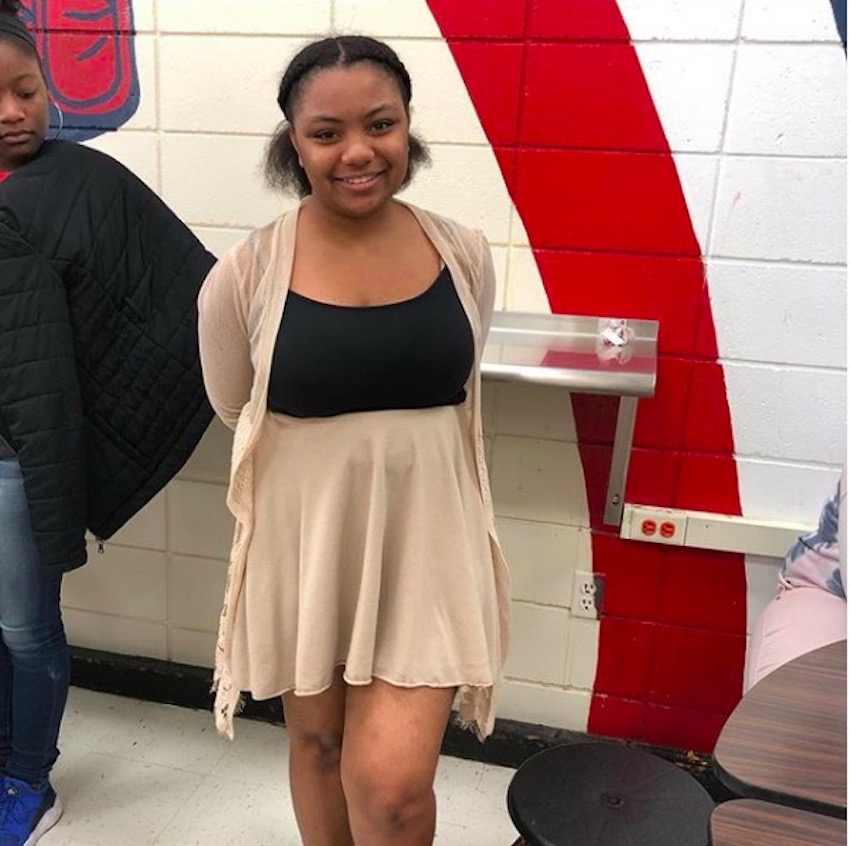
"When I received the text from Clara, I felt deeply concerned for my friend, knowing that she’s such a sweet person who already has so much going on in her life," Laura said. "She had science symposium that morning and is taking six AP classes. She ranks third in the class, and knowing the stress she was already going through that day really made the situation strike a chord with me."

Laura's father brought a change of clothes for Clara, whose parents both work full-time, just in time for her presentation. But the experience inspired Laura to take a stand on behalf of her friend.
She started a movement called "Pass the Skirt," which aims to challenge unclear dress code standards in high schools.
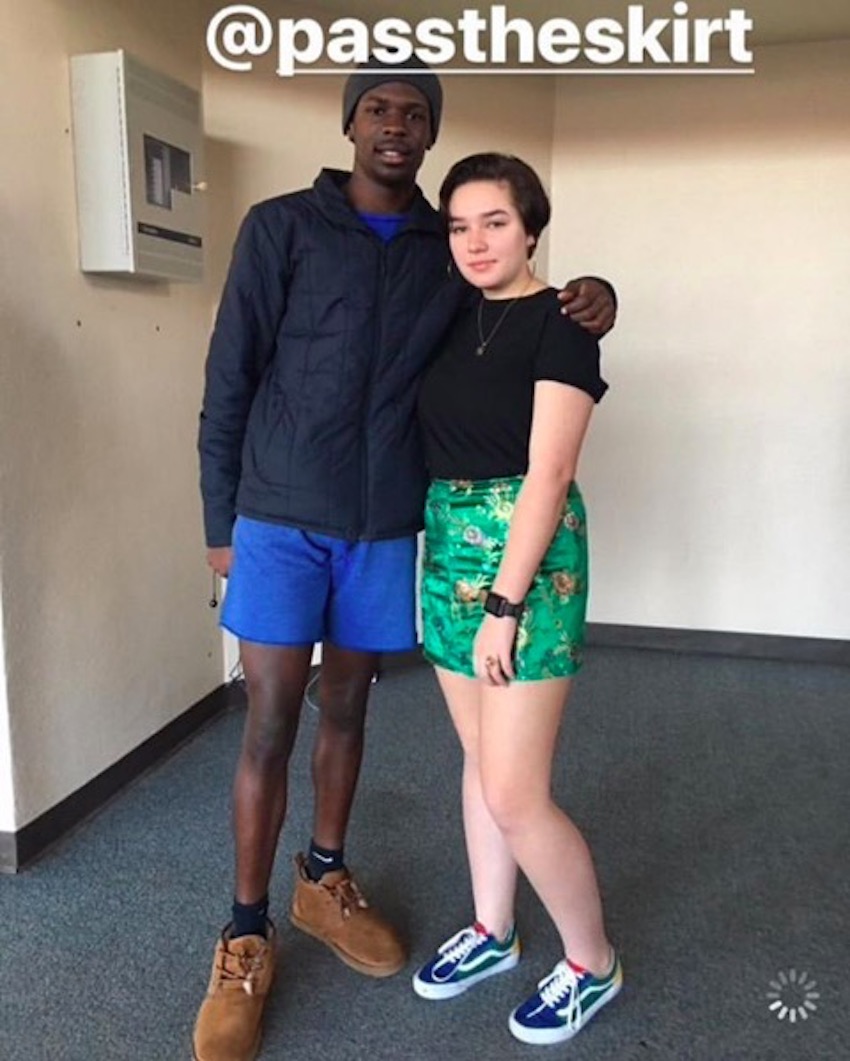
"Clara actually thought she was in (trouble for the) dress code last week, but different administrators will get kids for different things, and have different ideas of what 'out of dress code' really means," Laura said. "That’s the main thing that inspired me — wanting everyone to be dress coded equally and to set a good standard. I decided to act on her behalf simply because I care deeply for her and felt very disappointed in how the situation was handled that day."
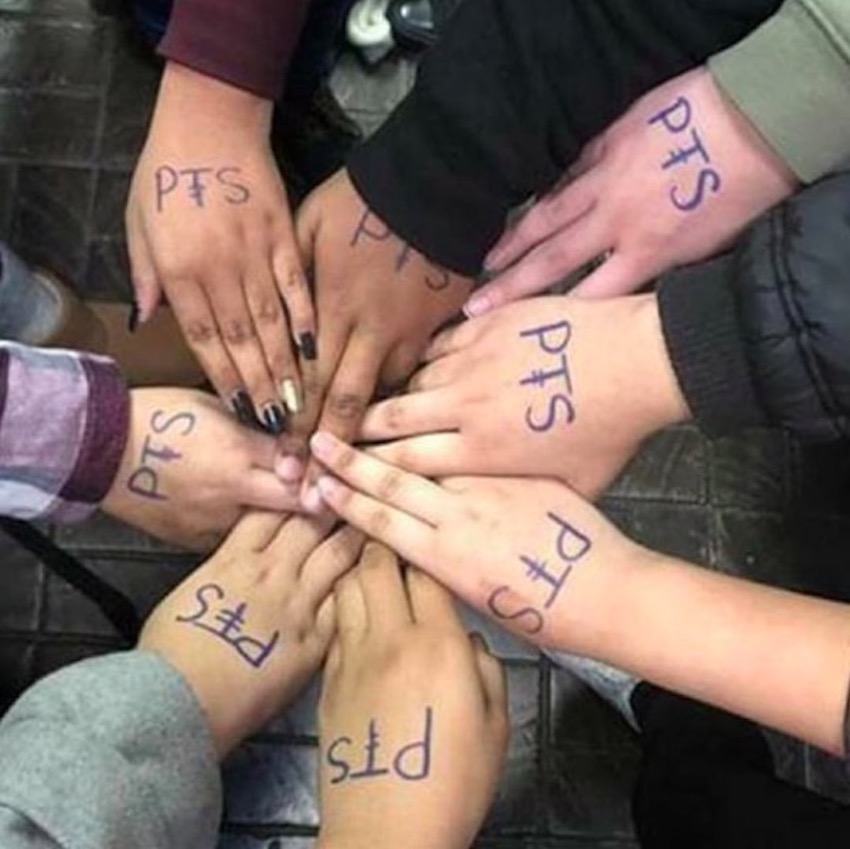
The day after Clara's violation, Laura wore the exact same skirt to school. Though she went out of her way to go into the office and bump into the same school administrators who had scolded Clara, Laura was never called into any school official's office. She was never accused of a dress code violation.
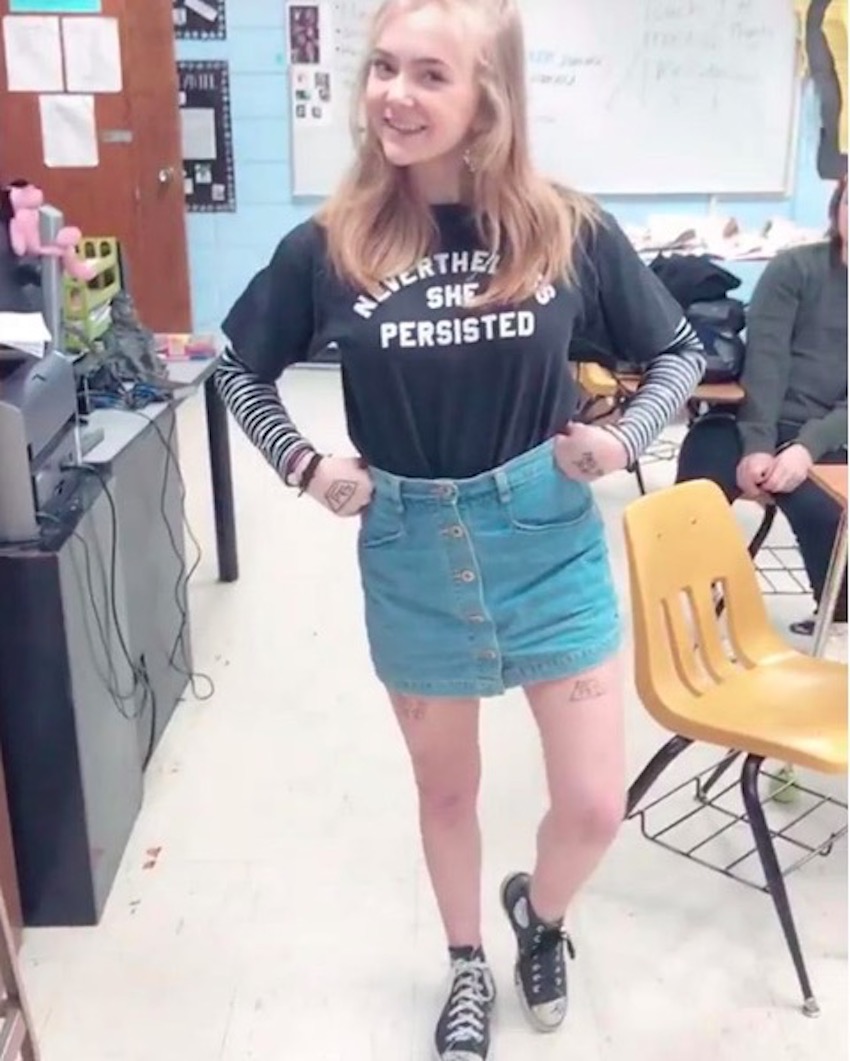
Laura strongly suspects that nonwhite girls like Clara are unfairly targeted for their clothing.
She explained, "I wore the same skirt the next day originally to prove that minority girls are treated differently than white girls. I still stand by that. We live in a society that breeds deep, subtle, often unrealized racism, and I think that’s why she was coded."

However, Laura acknowledges that there are also other biases at play, like body type. And of course, gender is the most noticeable discrepancy — young girls are punished for wearing clothes that "distract" from learning, while boys are not.

All types of students have participated in Pass the Skirt so far — all genders, skin colors, and body types.
On designated Pass the Skirt days, students loan each other their clothes to see if their friends have a different experience in the same outfit. The goal is for each student to document how they're treated for wearing the same or similar skirts to school.
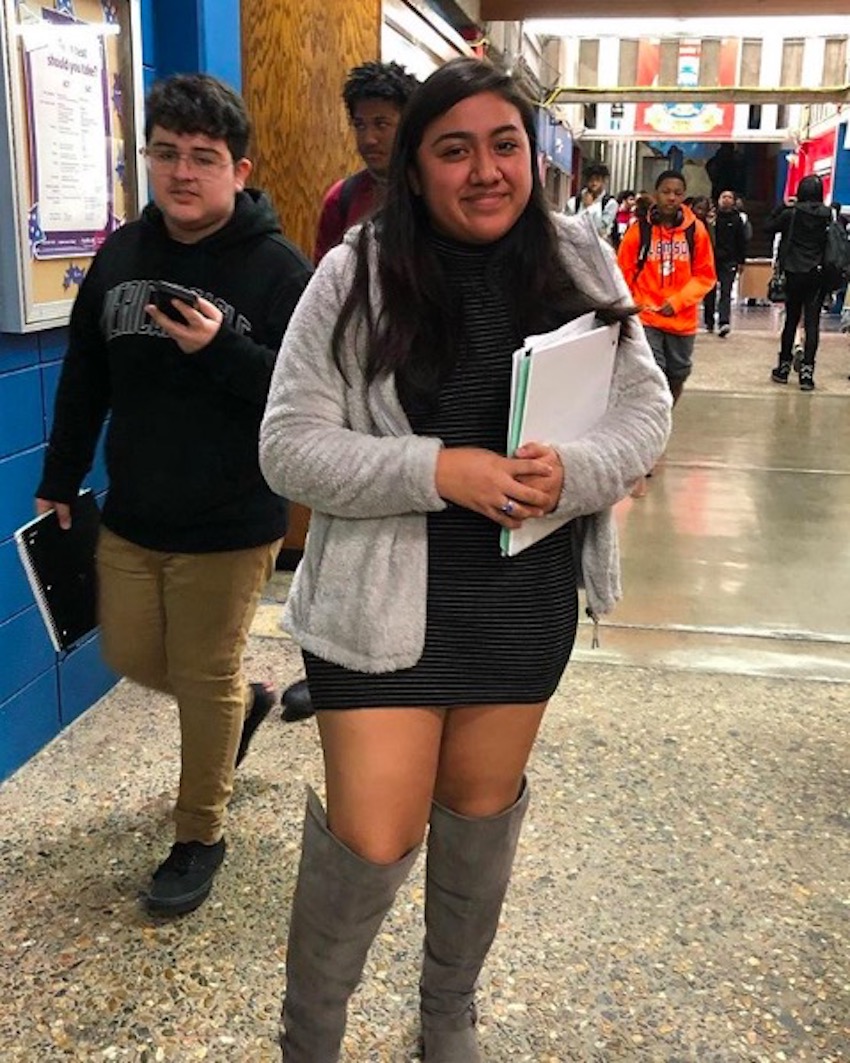
"Culturally, we need to stop viewing girls as mere distractions, as inherently sexual, as things we need to hide. We aren’t — we are humans who, at this point in life, are just trying to figure out who we are, and we want to express that," Laura said.

Laura's work is already having an impact. Pass the Skirt has received an overwhelmingly positive response online, and Laura has been invited to Parkview's Principal's Round Table to discuss possible changes with fellow students and administrators. The principal has also invited her to serve on the committee that revises the handbook each year.

"I love my school, and I hope this all goes in the right direction," Laura said. "I hope these people learn to enforce the code equally among all genders, body types, and races. I hope Pass the Skirt wins."
This generation of young folks is the best.



